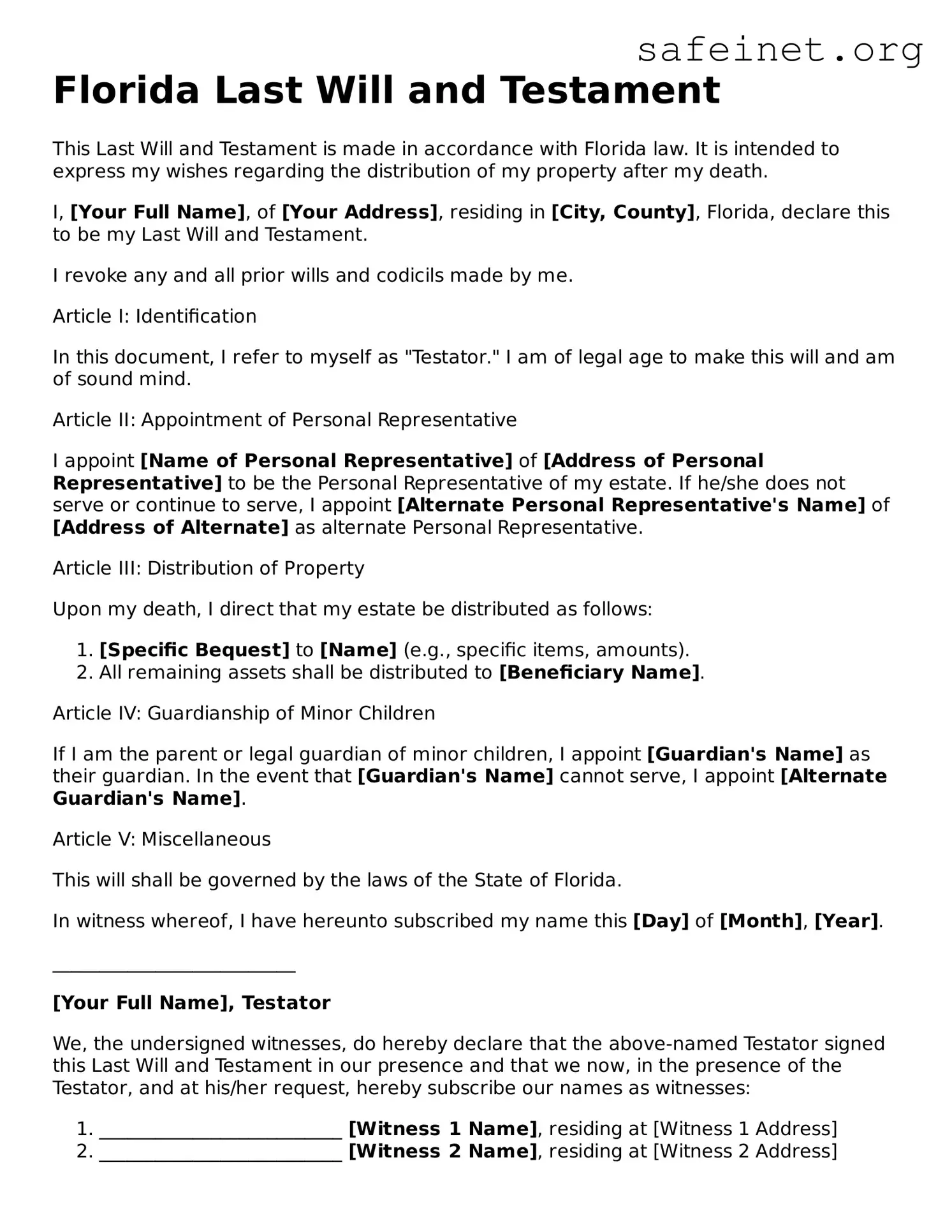Florida Last Will and Testament
This Last Will and Testament is made in accordance with Florida law. It is intended to express my wishes regarding the distribution of my property after my death.
I, [Your Full Name], of [Your Address], residing in [City, County], Florida, declare this to be my Last Will and Testament.
I revoke any and all prior wills and codicils made by me.
Article I: Identification
In this document, I refer to myself as "Testator." I am of legal age to make this will and am of sound mind.
Article II: Appointment of Personal Representative
I appoint [Name of Personal Representative] of [Address of Personal Representative] to be the Personal Representative of my estate. If he/she does not serve or continue to serve, I appoint [Alternate Personal Representative's Name] of [Address of Alternate] as alternate Personal Representative.
Article III: Distribution of Property
Upon my death, I direct that my estate be distributed as follows:
- [Specific Bequest] to [Name] (e.g., specific items, amounts).
- All remaining assets shall be distributed to [Beneficiary Name].
Article IV: Guardianship of Minor Children
If I am the parent or legal guardian of minor children, I appoint [Guardian's Name] as their guardian. In the event that [Guardian's Name] cannot serve, I appoint [Alternate Guardian's Name].
Article V: Miscellaneous
This will shall be governed by the laws of the State of Florida.
In witness whereof, I have hereunto subscribed my name this [Day] of [Month], [Year].
__________________________
[Your Full Name], Testator
We, the undersigned witnesses, do hereby declare that the above-named Testator signed this Last Will and Testament in our presence and that we now, in the presence of the Testator, and at his/her request, hereby subscribe our names as witnesses:
- __________________________ [Witness 1 Name], residing at [Witness 1 Address]
- __________________________ [Witness 2 Name], residing at [Witness 2 Address]
Each witness must be at least 18 years of age and not a beneficiary of this will.
